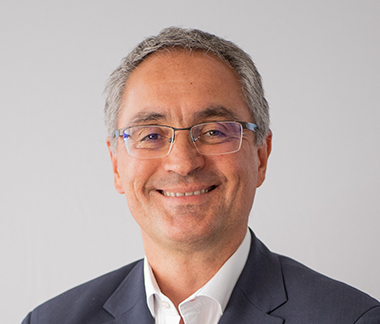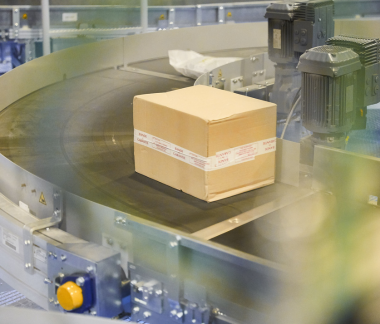Article from Décision Achats: "Focus on low-carbon freight transport"

13/01/2023, Mathieu Neu
Decarbonising the supply chain means rethinking the way we buy transport
Innovative solutions are gaining ground and go far beyond simply replacing polluting vehicles.
The decarbonisation of purchasing seems to be well underway. For example, 86% of companies are measuring their indirect CO2 emissions, from upstream to downstream, within the value chain of their purchases. These encouraging figures are highlighted by the barometer carried out in 2022 on the subject by Wavestone and Bpifrance Le Hub. However, there is still a long way to go, as 36% of purchasing departments do not currently have a budget for this purpose and do not plan to allocate funds to decarbonisation.
Clean and low carbon energy
The covid-19 crisis and its consequences have changed the habits of buyers, logisticians and transporters. In addition to the need to adapt quickly to the constraints and to find new supply channels, the price of fossil fuels has soared. "These will continue to be expensive in any case. The need to move globally towards clean or low-carbon energy for climate reasons is accompanied by new short-term incentives to do so. Many decision-makers are now changing their minds or are at least actively thinking about it. This is a favourable context for fundamental changes," analyses Nicolas Crestin, co-founder of Sami, a provider of digital solutions for decarbonisation.
For Ignacio Tirado, Managing Director of Easy4Pro, a marketplace that brings together buyers and transporters, "ecology is not yet a reflex in decisions. People are looking for a reliable and fast alternative that can be compatible with environmental concerns. CSR policies in place in companies sometimes guide choices, but we also sometimes explain to clients that they could have easily activated certain ecological options that would have allowed them to better promote low-carbon actions internally, without undermining other criteria of reactivity or cost.
Gas for La Poste Group
In France, La Poste Group seems to symbolise a global evolution that is slowly but surely taking its course in decarbonisation. It brings together within its scope of activity around 600 regular transport partners. "All kinds of players, from small carriers in dense urban areas to long-distance transporters. Some 5,000 heavy goods vehicles travel the national roads every day.
300 of these are our own trucks with our own drivers, and around fifty of these trucks are currently running on gas", summarises Christophe Baboin, General Manager at Viaposte Transport Management, a subsidiary of La Poste Solutions Business. A shift towards greener processes began in 2014, with the gradual introduction of LNG (Liquefied Natural Gas) and CNG (Compressed Natural Gas) solutions.
Although these projects are far too slow in the eyes of some observers, the last two years have seen an acceleration of initiatives: "We have our own gas station, located in Chelles in the Île-de-France region, to fuel our trucks.
It has been fully operational since April 2021. For the moment, 7% of our kilometres travelled are by gas", adds Christophe Baboin. In our decarbonisation roadmap, we plan to reduce the diesel fleet to 50% by 2030, with the other half being powered by biogas, electricity, biofuels and, in a second phase, hydrogen. A target of 100% low-carbon energy use is set before 2050."
Renault's sailing boat alternative
Other shifts towards greener transport are being made by well-known players, such as Renault's ambitious policy. "We have put in place a decarbonisation plan designed to exploit a number of levers simultaneously, such as reducing the number of kilometres travelled for each cubic metre of goods or moving towards more ecological means of transport. We are in partnership with the young company Neoline to use sailboats in a few years' time. At the same time, we are also conducting tests on biogas transport. We are making more and more progress in our action plans", says Frédéric-Aimé Rosenzweig, Renault Group Supply Chain Expert, member of the Board of Directors of France Supply Chain and of the Supply Chain4Good Lab.
But industrial realities sometimes complicate progress. “But it is of course very difficult to change the lines within a factory or with a supplier when the industrial systems have been in place for a very long time. The automotive industry is characterised by a complexity that makes it necessary to anticipate certain ecological transformation projects," he continues.
The need for a comprehensive approach
The decarbonisation of transport goes far beyond technological issues and the choice of means of transport. To be truly relevant, "it requires several axes: relocation, since the most decarbonised transport is always the one that does not exist, the multimodal aspect associating, for example, the train and the truck or the train, the boat and the truck, the optimisation of loads and the massification of flows. On this last point, data sharing is crucial in order to be more efficient and to avoid having city centres clogged with thousands of small carriers that make traffic impossible," explains Frédéric-Aimé Rosenzweig.
The development of large-scale organisations is therefore a necessary step. One of the recommendations is to set up platforms in cities that allow for the optimisation of routes between the different actors, in order to control flows, "with more relay points for example. We also need multi-company hubs, which implies a common organisation with shared data and resources," he adds.
Digital and carbon footprint measurement
If the Covid epidemic has led to a digital leap forward in agility, so too has the move towards decarbonised transport. Solutions to gain control over these topics are gaining popularity. "We offer a SaaS tool to measure the carbon footprint, to know in detail its emissions (upstream freight, downstream freight, employee travel...). This allows you to set reduction targets and implement an action plan to achieve them, according to parameters and a timetable in line with your requirements. We support companies alongside this platform with a carbon coach," explains Nicolas Crestin.
Investments are necessary, but must be directed in the right direction. This is what Brice Faure, managing director of planning software provider Anaplan, recommends: "It can be difficult to review existing scenarios and workflows when information is highly siloed. Turning to the cloud and SaaS mode allows for a radical break with the past and for a much faster implementation, often in just a few months, of a harmonised and centralised global system.”
A wind of innovation
The Association des Chargeurs, led by France Supply Chain, and the AUTF (Association des Utilisateurs de Transport de Fret) launched a call for tenders in February 2022 to create solutions for the transport of cargo ships with sail propulsion as early as 2024. The idea seems to belong to the distant future. In reality, it is not. Some innovative companies are already making this ambition of equipping large ships with giant sails very concrete, like the French company Zéphyr et Borée, which has just launched a 185-metre container ship with sails. The ecological advantage is considerable, since the vessel reduces the carbon footprint by 80% on a transatlantic journey.
Another upcoming innovation is the hydrogen vehicle, which is capable of achieving near-zero CO2 emissions. Demonstrators are already being set up to test trucks with this sustainable energy. But a sufficient supply network is needed, and this does not exist at present. However, the use of hydrogen for transport could become more than anecdotal within 5 to 10 years. The cost of this resource currently remains a considerable obstacle. It costs €12 per kilogram of hydrogen. Knowing that almost 9 kilos of hydrogen are needed for a semi-trailer which wants to travel 100 kilometres, it costs about €1 per kilometre, which is of course prohibitive.







